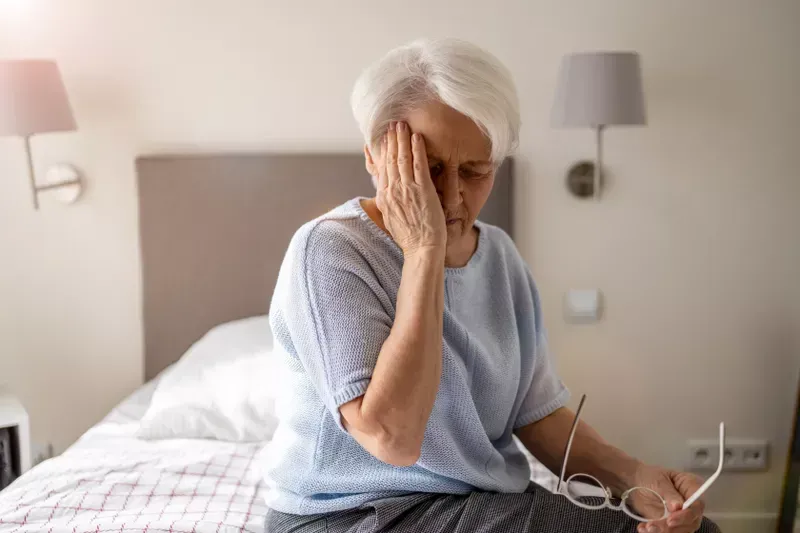Give us a call: (303) 814-2688
Email us on: francis@assuredal.com
BLOG
Understanding Concussions and Their Long-Term Effects
Concussions are brain injuries that occur when the brain moves rapidly within the skull, often due to a fall, impact, or accident. Although commonly associated with sports, seniors are particularly vulnerable due to increased fall risk and thinner brain tissue. Understanding the long-term effects of concussions is vital for seniors and caregivers to promote recovery and prevent complications.
For seniors, even mild concussions can lead to significant health challenges over time. While some symptoms resolve within weeks, others may linger and affect memory, cognition, and mood. Knowing what to expect can help families create supportive care plans and address changes early.
What Happens During a Concussion?
A concussion occurs when a force causes the brain to hit the inside of the skull, leading to chemical changes and potential nerve damage. This impact disrupts brain function, resulting in confusion, headache, dizziness, and other symptoms. For seniors, concussions, especially their long-term effects, are often caused by falls, which are more common due to balance or vision issues.

Immediately following a concussion, the brain undergoes metabolic changes that can impact normal functioning. Blood flow may decrease, and certain brain cells may become temporarily inactive. While the brain often repairs itself, this process can take longer in seniors, leaving room for lasting effects.
Understanding what happens in the brain can help caregivers monitor symptoms more effectively. Recognizing that recovery may be slower in seniors emphasizes the need for ongoing support and frequent check-ins with healthcare providers.
Recognizing Concussion Symptoms in Seniors
Concussion symptoms in seniors can differ from those in younger individuals, and symptoms may appear gradually rather than immediately. Common signs include confusion, memory loss, fatigue, and dizziness, which can easily be mistaken for normal aging or other health issues. This delayed onset makes it crucial to monitor any behavioral or cognitive changes following a head injury.
For seniors, confusion or forgetfulness following a concussion can also lead to increased frustration or anxiety. In some cases, physical symptoms, like headaches or sensitivity to light, may accompany these cognitive changes. Documenting all symptoms is essential, as they can vary daily and may worsen with physical or mental exertion.
Monitoring symptoms carefully allows for an informed discussion with healthcare providers about ongoing care needs. Consistent documentation can reveal patterns and support timely interventions if symptoms persist or worsen.
Long-Term Cognitive Effects of Concussions
Seniors who experience concussions may face long-term cognitive effects, including memory issues, slower information processing, and difficulty concentrating. These cognitive changes can interfere with daily tasks, making activities like following conversations, reading, or managing finances more challenging. The effects may vary in intensity but can be distressing for seniors and their families.
In some cases, long-term cognitive impacts resemble symptoms of dementia, adding to confusion and stress among loved ones. This similarity can make distinguishing between concussion-related changes and other cognitive conditions common in aging difficult. Medical assessments can help clarify the cause and suggest personalized strategies for managing symptoms.
Cognitive exercises, memory aids, and routines can assist seniors in coping with these effects. Regular mental stimulation and consistent routines can help preserve cognitive function and enhance the quality of life, even if a complete recovery isn’t possible.
Physical Challenges and Lingering Symptoms
Physical symptoms from a concussion, such as dizziness, headaches, and balance issues, can persist long after the initial injury. For seniors, these symptoms increase the risk of additional falls, further complicating recovery. Chronic headaches and fatigue can also limit social engagement, leading to isolation or depression over time.
Managing physical symptoms often requires a combination of rest, pain management, and physical therapy. Balance exercises and mobility aids can help seniors navigate daily activities safely while reducing fall risk. These proactive steps support physical stability and prevent further injury, fostering a safer environment.
Caregivers play an important role in creating safe living spaces free from trip hazards and encouraging seniors to use supportive tools as needed. These small changes can significantly impact seniors' safety and comfort.
Long-Term Emotional and Psychological Effects of Concussions
The long-term emotional effects of concussions can be profound, with many seniors experiencing frustration, irritability, or mood swings. The struggle to recall memories or participate in conversations can lead to feelings of isolation and helplessness. These emotional challenges, if left unaddressed, may exacerbate cognitive symptoms and lead to a cycle of decline.

Psychological support, whether through therapy or support groups, is often beneficial for seniors recovering from a concussion. Counseling or group discussions can offer a safe space to process these emotional changes, building resilience and coping strategies. For many, connecting with others who understand their experience can alleviate loneliness.
Involving family and caregivers in the emotional recovery process is key. Open communication about feelings and struggles can foster understanding and provide emotional reassurance.
The Importance of Medical Follow-Up
Regular medical follow-up is essential for monitoring the progression of post-concussion symptoms. These visits help detect any worsening symptoms and ensure that the treatment plan remains effective. With consistent check-ups, healthcare providers can track recovery and adjust strategies to better support long-term health.
A comprehensive care approach often involves input from multiple specialists, such as neurologists, therapists, and primary care doctors. Each professional contributes insights into managing cognitive and physical challenges, creating a well-rounded support system. This holistic care plan helps prevent complications and promotes a smooth recovery.
Family members should attend appointments with the senior to help communicate concerns and take notes on medical guidance. These visits provide valuable information on adapting daily care routines and effectively supporting ongoing needs.
Prioritize Support for a Healthier Recovery from the Long-Term Effects of Concussions
Concussions in seniors present unique challenges that require dedicated care and support. Understanding the long-term effects, from cognitive changes to emotional impacts, can help families prepare and create a comprehensive care plan.
Assured Senior Living supports seniors and their families in navigating health challenges. Contact us today to learn how our services can help your loved one recover with compassion and expertise.
All Rights Reserved | Assured Senior Living















